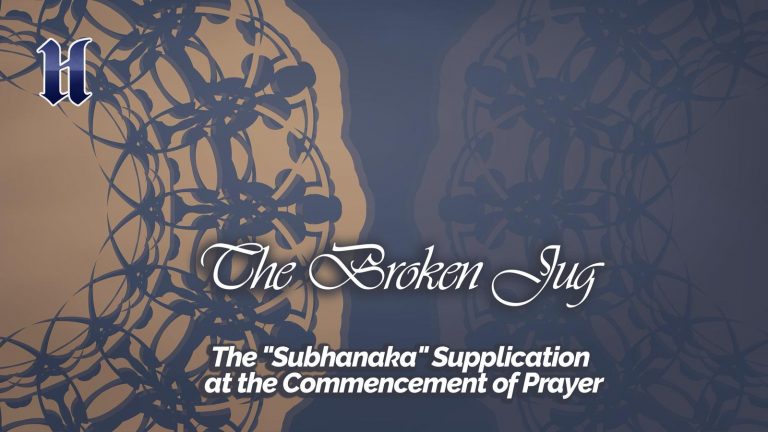Question: It is sometimes the case that people who are responsible for a certain area or who govern a certain place, after a period of time, begin to consider themselves as the owner of that place. Could you elucidate how believers should think and behave when this happens?
Answer: Regarding someone who is responsible for administering and governing others, there is a great difference between his bearing the responsibility of the duty he carries out and seeing his field of responsibility as his personal property. However, this fact is unfortunately ignored and abused by many. When people responsible for others do not follow the righteous path of the Messenger of God, peace and blessings be upon him, and the Rightly Guided Caliphs, may God be pleased with them, when they do not see themselves as trustees in the position they occupy but as the owners of that place, it means that they have begun to pave the way that leads to tyranny.
People Who Firstly Lay the Blame on Themselves for Negativities
Essential to being protected from such a danger is for people in power to be self-critical and take personal responsibility for any negativity that occurs related to their area of responsibility. Actually, this understanding and philosophy of governing is based on Muslim religious thought and feelings. The attitude of Caliph Umar ibn al-Khattab, may God be pleased with him, is a perfect example for us in this respect. Within the ten-year period he served as caliph, there were glorious conquests. Despite being such a great state leader, during a time of famine, he prostrated himself among some ruins and beseeched God Almighty, asking Him not to destroy the Muslims because of his sins. Similarly, people in leadership positions must firstly hold themselves accountable for arising negativities, failures and breakdowns; they must constantly beseech God and strive their best to solve problems.
The devoted souls who keep endeavoring for the good of humanity in order to pour the inspirations of their soul into the needy hearts might occasionally encounter problems while fulfilling their responsibilities. For example, God Almighty blesses them with certain accomplishments to gain people’s appreciation. On seeing these accomplishments, some people with weak characters might desire to appear within the same frame as those devoted souls. Consequently, when those who are motivated by personal gain are not able to find what they expected, they might resort to all kinds of evil including slander and libel. God Almighty will surely bring to account those who commit such evil. However, the governor of the land where this problem is experienced must say, “I wonder what kind of wrong I committed that led us to experience such a misfortune?” and bring himself to account first of all.
People Who Do Not Lay Claim to Achievements
When people in leadership positions do not engage in self-criticism and self-supervision they do not want to admit any fault, even for the problems that are directly due to their own wrong decisions, and therefore they keep accusing and laying the blame on others. When the wrongs and mistakes are highlighted, they perceive it as a threat to themselves and wish to silence those who highlight them. In short, they become tyrannical. Leaders who lay personal claim to achievements that have been granted by God Almighty as a result of concerted efforts from society will become deluded into thinking that everything begins and ends with their own person. This delusion of seeing themselves as the beginning and end is actually an implication of claiming to be a deity. The grim end of a person who dares to make such a claim is stated as follows in one hadith qudsi: (God Almighty says) “Pride is My cloak and greatness My robe, and whoever competes with Me with regard to either of them, I shall throw him into Hell.”[1] A person who sees himself as great and thus takes pride in it will be considered to have attempted to be a partner with God regarding these attributes. The Almighty Lord gives the warning that He will throw such a person into Hell.
Collective Reason and Favorers of Consultation
In fact, as nothing has begun with our person, nothing will end with our person either. On the contrary, deeds we attribute to ourselves will yield no fruit; whereas deeds carried out far from egotism and self-importance will not be irrelevant or fruitless. This is how a person should always see himself and the services for which God employs him. Instead of acting as one person, and always thinking he alone is the best person to make a decision, one should value collective reason and never take an indifferent attitude toward the mechanism of consultation. When one sees that je cannot fulfill his responsibility properly, he should know to step down righteously and easily say: “With regard to my position, I am trying to develop the feeling of concord and unity in people, and inviting Divine help by trying to reconcile their hearts. If I am not giving my position its due, not achieving practical aims and if I cannot be convincing with my manner and behaviors, then you can take me from this duty and assign me to a lesser one.” The feelings and thoughts of those who claim to have dedicated themselves to the path of truth and for the good of the people should be thus.
People Who Do Not Cherish Worldly or Otherworldly Expectations
The devoted souls should not have any worldly or otherworldly expectations for the duties they carry out. Desires such as achieving high ranks, acquiring different titles or being the center of attention must never settle in their hearts. Continually seeking higher worldly positions in a greedy fashion is an indication of pride and conceitedness. However, it is very difficult for conceited people to act in a balanced way regarding this issue, to give their position its due and to become aware of their responsibilities; for they see themselves as the same as Atlas, supporting the world. They think that when they recede from duty, it will mean inevitable disaster for the world. This is nothing but gross misguidedness and deviance.
Most of the principles Bediüzzaman gives in his chapters, ‘On Sincerity and Brotherhood’ are golden criteria related to this issue. Complying with them is very important in terms of preventing such deviations. For example, he advises preferring being a follower to being a leader, which brings responsibility and is therefore risky. Namely, a person should prefer following a person who is eligible for a certain position rather than becoming the leader of others, which entails responsibility, danger and risk.[2] For example, imagine that a group of Muslims is going to observe congregational Prayer somewhere. One should not be eager to be the imam to lead the Prayer, but should withdraw to the side and know to pray behind someone else. Unless one is accepted by others as eligible and is offered the position, one should not even wish to be the muezzin, but rather should leave this duty to another. If such cautiousness is observed about issues such as leading the Prayer or delivering a speech somewhere, this quality will be ingrained in individuals’ hearts and become a character trait in them. If people can manage to withdraw in this way into the depth of their character, they will not seek to become tyrants and will not adopt despotic attitudes.
Humble People Who Avoid Esteem and Applause
Ottoman rulers such as Mehmed II, Selim I and Süleyman the Magnificent underwent a serious edification and rehabilitation in this regard and therefore did not grow tyrannical, even when they ruled an important part of the world. They remained humble and self-effacing. As for the improper remarks and defamations certain persons in Turkey make about them, these are nothing but hollow statements that stem from ignorance. Sultan Suleyman only spent one year of his 46-year rule in Istanbul. Just as his lifetime was spent in military campaigns, his demise was also during a campaign. He was someone who spent his lifetime on horseback for the sake of justice, but, in terms of his attitude toward the people, he was always humble and modest toward his followers. It is narrated that after returning to the palace triumphantly, he had his bed made up in the corridor in order to challenge his ego and not let it become arrogant. Likewise, when the blessed Sultan Selim I returned from the campaigns of Marjdabiq and Ridaniya, he did not directly go to the palace but waited in Üsküdar until midnight. When the people were sleeping in their homes, he quietly went to the palace in order to avoid the people’s praise and applause.
Spiritual Nourishment Should Not Be Neglected
So, it is very important for people who have dedicated themselves to serving faith and humanity to undergo such edification right from the beginning. A person should not become a minor tyrant when responsible for a small sphere so that when his responsibility grows he will not assume himself to be sovereign of the world, pursuing impossible projects, oppressing people and taking no advice in the case of failing at all of these. On the contrary, he should believe that positive results are only realized with God’s permission and grace; he should not forget that he is merely an apparent minor cause and should humbly know his place no matter what position he occupies.
For this reason, in terms of administrative positions from the lowest to the highest, nobody should be neglected in terms of spiritual nourishment. Individuals must constantly be rehabilitated within the frame of Islamic, humane and universal moral principles and it is necessary to help them be cultivated as “human.” If people do not receive spiritual nourishment but are left alone, they can fall into a void and go astray. Once this happens, they become egotistical and say, “I, I, I…” They follow a path of misguidance that ruins them, causes them to lose the true friends and makes them fritter their life away in the narrow prison of their ego.
[1] Sahih Muslim, Birr, 136; Sunan Abu Dawud, Libas, 26.
[2] Nursi, Bediüzzaman Said, The Gleams, New Jersey: Tughra Books, 2008, p. 215.
This text is the translation of “Güç Zehirlenmesi ya da Tiranlaşma.”






